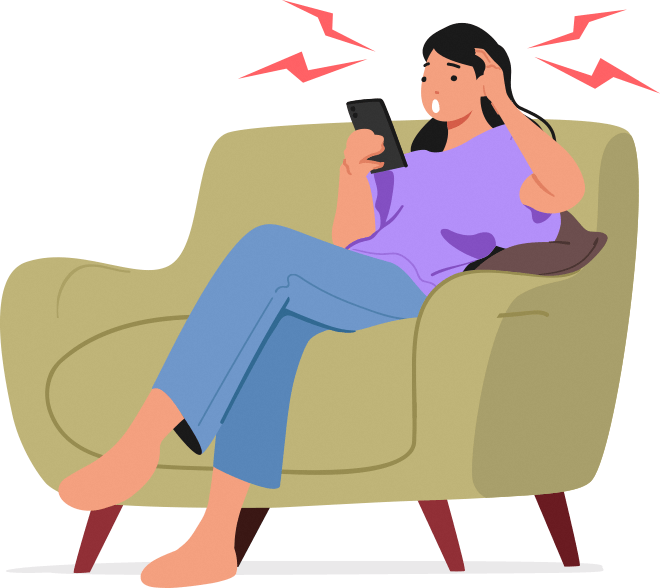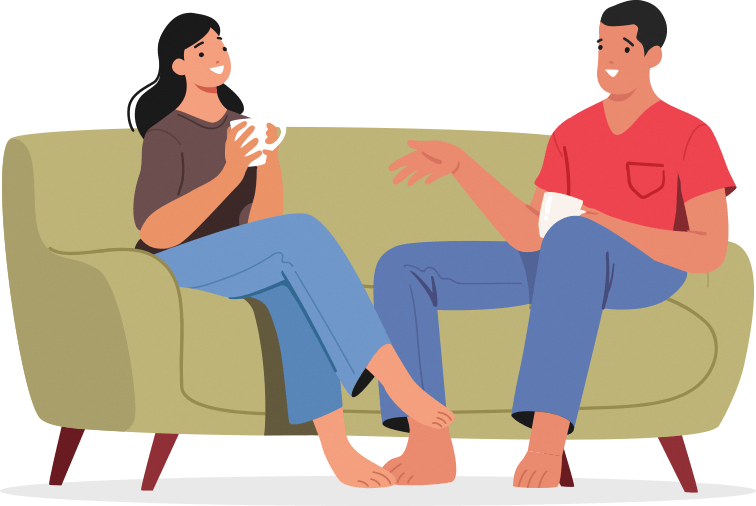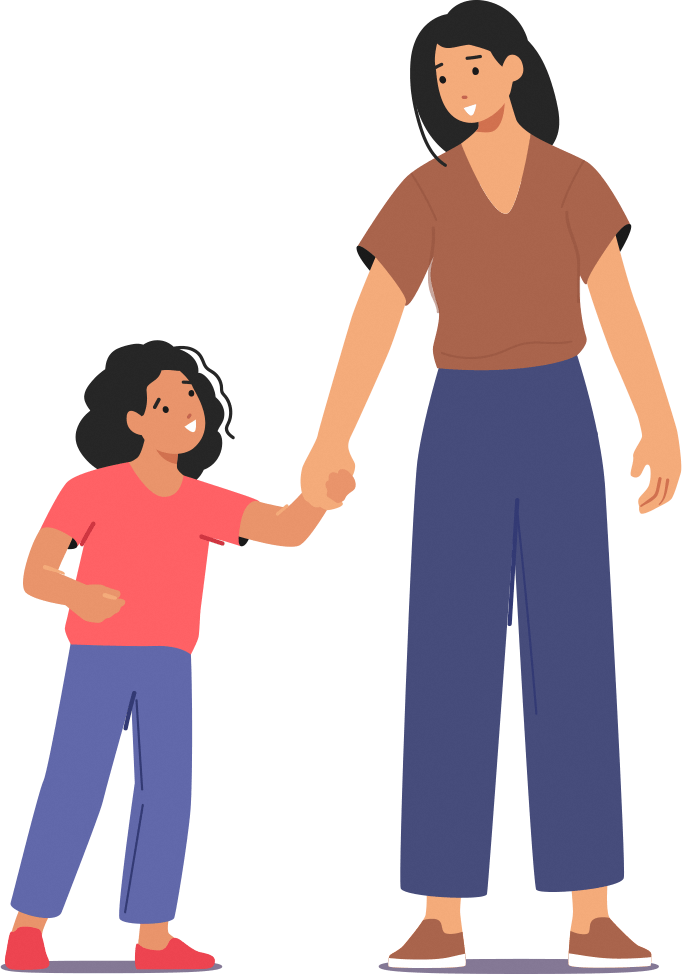What changes can you make to your lifestyle habits to better care for yourself?

There is no one way to take care of yourself with different methods working for different people. To better care for your own well-being, it is important to figure out what changes to your lifestyle habits work for you.
Here are some things you can try to find the best self-care method for yourself:

-
While it can be hard to take breaks from your duty as a parent without feeling guilty, remember that taking a breather is very important – you cannot run on zero fuel
-
Taking small breaks can help you feel more energised and be present throughout the day
-
Set aside some time in your schedule to recharge and relax with simple activities, like listening to your favourite song

-
Avoid doomscrolling* as what you read and hear about every day can affect your mood and mindset
*Doomscrolling refers to the act of spending an excessive amount of time online scrolling through negative news or social media posts which often can lead to feelings of anxiety, stress or helplessness -
While it is important to stay updated, give yourself short breaks from reading negative content and tune in to negative content only when you feel ready
-
You can also balance your consumption of negative content with positive ones by choosing to subscribe to uplifting content

-
You may often feel stressed going about your busy day and this can sometimes result in tight and tense muscles
-
Try this deep breathing exercise to help your body and mind relax

-
Physical (e.g. getting enough sleep, eating healthy by preparing meals in advance, exercising during lunch breaks or as a family activity)
-
Emotional (e.g. managing stress by taking deep breaths, starting a new hobby or engaging in a pre-loved hobby with friends, journalling)
-
Social/Relational (e.g. spending quality time with loved ones by scheduling regular family meals, initiating meetups with friends, asking for support)
How can you make time to care for yourself?
Time management is a challenge for almost all parents. However, self-care is not selfish, and it is important to ensure you have some “me time”. By taking time for yourself, you can recharge to be more energised and a better parent for your child.
If you still feel worried about not being present enough for your child, it may be helpful to reflect on the following:
Are you aware of how you spend your time?

Are you aware of how you spend your time?
-
You may sometimes get caught up in certain tasks and activities
-
Try keeping a journal of what you do and how long you take to do each activity for a few days
-
If you notice that you are spending a lot of time on certain tasks, reflect on whether these tasks are truly important or valuable, and whether you can cut down the time spent on them
Are you prioritising family time and time for yourself?

Are you prioritising family time and time for yourself?
-
Prioritising family time is good, not just for your child, but also for you as a parent
-
Enjoyable family activities can help you be a better and happier parent and individual
-
Having time for yourself means setting aside time, away from the demands and responsibilities of work, family, and social obligations to engage in activities that you enjoy
Are you stressed over your time management?

Are you stressed over your time management?
-
Having unrealistic expectations of your own time management or comparing yourself with other parents can make you feel more stressed about your lack of time
-
Additionally, when you are stressed for long periods of time, it can make you perceive challenges as more difficult and make you feel even more time stressed
-
Consider what you do and do not have control over, focusing on changing those you can control to overcome your difficulties in managing time
Be aware of and understand your feelings and reactions
Acknowledge your feelings and avoid beating yourself up when things do not go as planned. Take a moment to think about what might be making you feel this way and ask yourself what worked well and what could be done differently. You can also seek help and support from people you trust (e.g. family members, friends).

When going through challenges, you may also experience difficult and complex feelings. Just as you look out for possible signs of distress in your child, you should also look out for these signs in yourself.
If you find you have been struggling and feeling distressed despite seeking support from those around you, consider reaching out to mental health professionals for more support.

How can you receive support from other parents?
Parenting is not only a learning journey that you share with your child, but also one you share with other parents. If you feel discouraged or lost, you can try speaking to other parents around you, especially those with children of similar ages as yours, to exchange experiences and tips.
If you do not know of other parents whom you can trust and confide in, there are different ways to get in touch and build relationships with other parents, such as through the Parent Support Groups (PSG) in your child’s school or community support groups for parents. You can approach your child’s school to find out more and join the PSG.

For community support groups:
-
Find out more about the ‘Families for Life’ online community for parents by clicking here
-
For fathers, you can find out more about ‘DADs for Life’ support groups in the community here or email cff@fathers.com.sg to join a support group
-
For mothers, you can find out more about ‘MUMs for Life’ support groups in the community here or email connect@mumsforlife.sg to join one
How does caring for yourself make you a good role model for your child?
Your child looks up to you and learns from observing your behaviours and reactions. As such, to effectively help them use strategies and skills (e.g. help-seeking, problem solving) learned from the modules on this site, you will need to first practise and apply these learnings to yourself.
If you find it difficult to make time for yourself, try engaging in relaxing activities together with your child. This helps your child see that you are making the effort to take care of yourself, which is a habit they can then learn from you.

As positive parenting can positively influence your child's mental well-being, you play a critical role in supporting your child. However, if your child still struggles to cope despite your best efforts, remember this is not a failure on your part. Take the opportunity to show them seeking help is not a sign of weakness, but a sign of resilience and courage.




